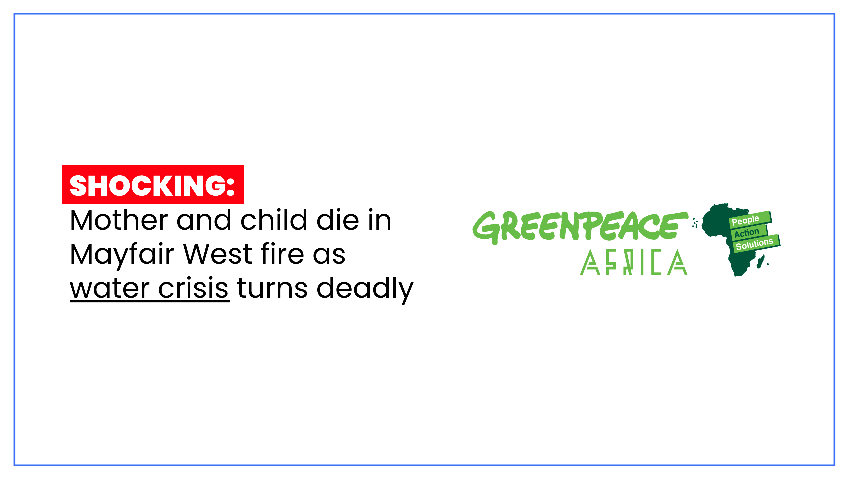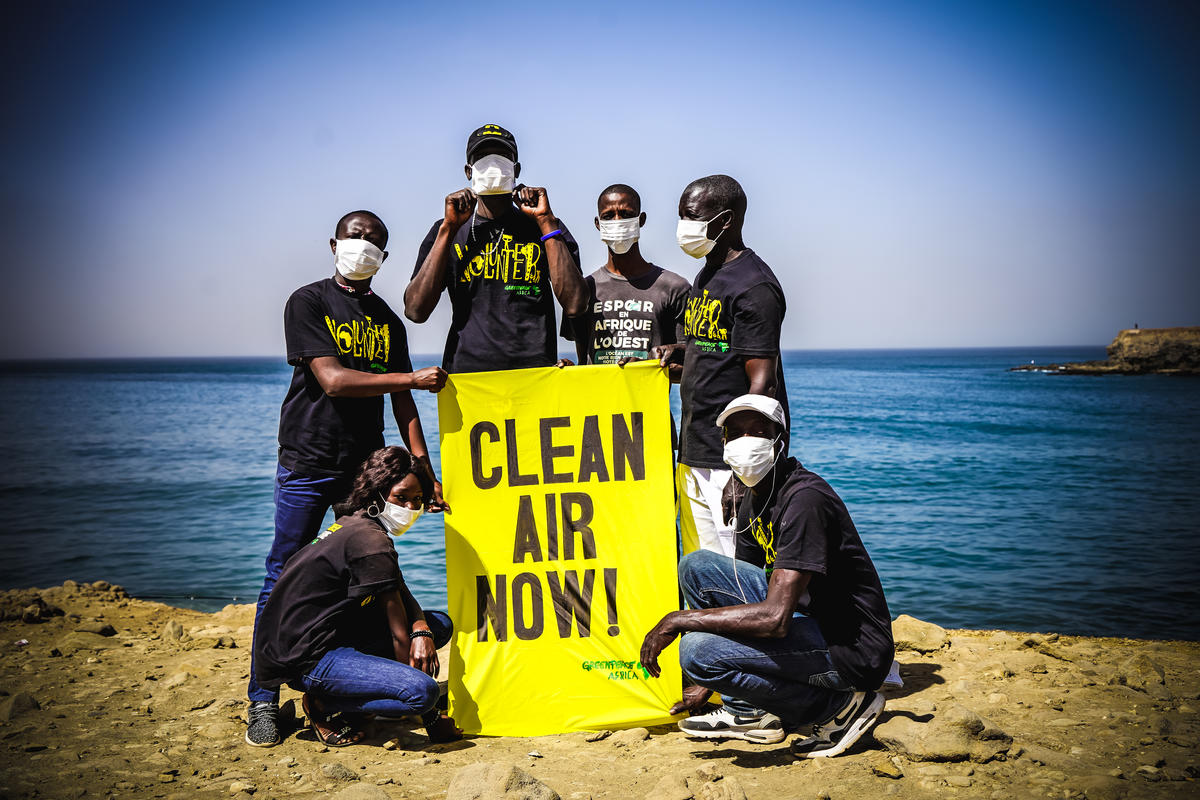Johannesburg/ 24-07-2024 The South African President has just “signed into law the Climate Change Bill which sets out a national climate change response”, says the official communique. This decision implies among other that the law will include the mitigation and adaptation actions, which will play a key role in regulating the country’s contribution to the climate change response as it strengthen the country’s ability to reduce greenhouse gas emissions, and build climate resilience”
Cynthia N Moyo, Climate and Energy Campaigner at Greenpeace Africa said:
“The signing of the Climate Change Bill by President Cyril Ramaphosa is a significant step in the right direction towards South Africa’s commitment to global climate change mitigation. The bill is timely and welcome, the president is finally acknowledging that the carbon-intensity of our economy is unsustainable and we need to strengthen our adaptation and mitigation measures and also accelerate our decarbonization efforts. The bill’s proposal to ensure there is cooperation from national level to provincial and municipality level speaks strongly to decentralized climate actions.”
“Addressing the impacts of climate change on vulnerable groups and poor communities should be a priority in South Africa’s climate policies. However it’s unfortunate that this bill proposes allocation of carbon credits. Carbon credits/budgets are a false solution and an attempt at greenwashing. The reality is that carbon credits allow big polluters to justify their actions without taking responsibility for their emissions.” added Cynthia
“The bill looks effective on paper. We really hope that strong measures will be established soon to support the implementation of this Act. Our country is facing the effects of climate changes : we have recently recorded a series of extreme weather events i.e. floods, droughts and a tornado, and loadshedding remains a nightmare for most of South Africa. We have to tell a different story and we can not do this without strong regulations”, Cynthia concluded
The policy gives direction and certainty for sound investments that will reduce the country’s carbon emissions and take the country to a lower carbon economy thus deepening the Just Transition.
South Africa has set itself the target of achieving zero emissions by 2050 as part of its low-emissions development strategy. But on the ground, the country is still far from the goal and remains on the top of African countries with higher rates of Air pollution. According to Greenpeace Africa’s last report on Air pollution, six of the world’s ten largest NO2 emission hotspots identified are found in Africa, all in South Africa.
Media Contacts
Greenpeace Africa Press Desk:
Luchelle Feukeng, Communication and Storytelling Manager\
+237 656 46 35 45
Cynthia N Moyo, Climate & Energy campaigner, Greenpeace Africa
+27 78 337 8872



